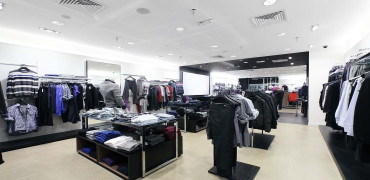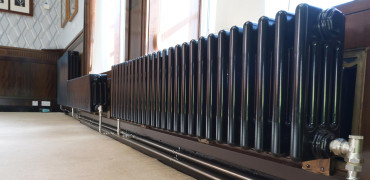James Harman highlights why sustainability in the hospitality sector is no longer a niche concern, but a defining factor in how hotels attract guests, secure investment, and manage long-term costs.
The hotel sector is embracing a low-carbon, sustainable future. Corporate goals from the big operators, legislation and investor demands have put carbon reduction at the top of the hotel business agenda.
A major driver for change has also been the evolution in today’s guest expectations. A new generation of hotel guests views sustainability as an important characteristic of the brands they’re prepared to support.
A recent survey shows that 88% of modern travellers factor sustainability into booking decisions, with many willing to pay a premium for hotels with environmentally-friendly practices.
Industry leaders such as Marriott, Hilton, and IHG are incorporating sustainability commitments into their operational strategies, with targets to cut emissions and improve energy efficiency across their global portfolios.
Modern heat pumps can provide high volumes of hot water on demand, enabling hotels to drop gas heating
Energy efficiency and decarbonisation
There are many routes to reducing carbon emissions in the hotel sector, from how linens are cleaned to where restaurant food is sourced. Equally, the hotel building itself is a source of emissions, particularly from heating, hot water and cooling systems.
Ensuring that these are up-to-date and optimised for energy efficiency is critical for long-term energy and carbon savings.
But there are other drivers for change in hotel HVAC, particularly in the UK. One is the decarbonisation of buildings, to reduce our reliance on gas boilers for heating and hot water.
Another is the transition to refrigerants in air conditioning systems with a lower Global Warming Potential (GWP), which has seen many building owners switch to R32-based systems in the past few years.
Getting into hot water
There has been a wave of retrofitting in the hotel sector resulting from these factors, but change has also been supported by developments in modern HVAC systems that make retrofitting an attractive option for hotel operators.
For example, the gas boiler has traditionally been the backbone of hotel hot water systems for decades. Delivering high volumes of hot water during peak demand is an essential part of hotel operations – cold showers are bound to result in customer complaints.
But modern heat pumps can provide high volumes of hot water on demand, while enabling hotel operators to drop the fossil fuel heating. For example, the Mitsubishi Electric Ecodan QAHV is specifically designed for commercial hot water applications.
The QAHV provides water up to 90oC. It’s extremely energy efficient and operates at super-low noise levels, ensuring guests aren’t disturbed.
Enhancing guest comfort
When it comes to changing air conditioning systems, the transition to lower GWP refrigerants is key for hotels.
This is not only because it reduces the embodied carbon of the system, but it also ensures that the building is future-proofed against changes in regulations that are seeing high GWP refrigerants phased out of the market.
Again, modern VRF systems provide a genuine upgrade from older systems, not only in terms of energy efficiency, but also in overall performance that enhances guest experience.
Mitsubishi Electric’s Hybrid VRF (HVRF) is ideal for hotel owners looking to reduce energy consumption and lower the amount of refrigerant in their buildings.
HVRF uses lower GWP refrigerant R32, while also a smaller volume of refrigerant to deliver year-round comfort and stable air temperatures.
Installation is also easier than a traditional VRF system since the Hybrid approach removes all refrigerant from occupied spaces, so there is no worry about the extra expense of installing leak detection.
Taking back control
In fact, upgrading HVAC systems to modern, energy-efficient solutions is one of the most effective ways for hotels to reduce their carbon footprint while improving overall operational performance.
For example, today’s smart HVAC controls systems can help hotel managers monitor and report on HVAC system performance. Mitsubishi Electric’s MELCOTEL2 , designed for the hotel sector, connects with up to 200 City Multi indoor units through centralised controllers.
It can work alongside hotel keycard systems to ensure that air conditioning is switched off in unoccupied rooms.
Beyond energy efficiency, upgrading to modern HVAC systems also improves guest comfort. Today’s technologies allow more precise temperature management, reduced noise levels and improve air quality which all contribute to a superior guest experience.
Retrofitting low-carbon HVAC systems with low-GWP refrigerants is not just a facilities-based decision, it’s one that can help hotels gain competitive advantage.
Hotels that take steps to improve energy efficiency, reduce reliance on fossil fuels, and adopt forward-thinking control strategies will be better positioned for long-term success.
Specifying the new Mitsubishi Electric City Multi YXM R32 VRF system, with its efficient R32 refrigerant, compact design and advanced heat exchange technology, helps hotels cut both energy use and whole-life carbon emissions- making a measurable contribution to their net-zero strategies.
James Harman is Business Development Manager for Mitsubishi Electric




